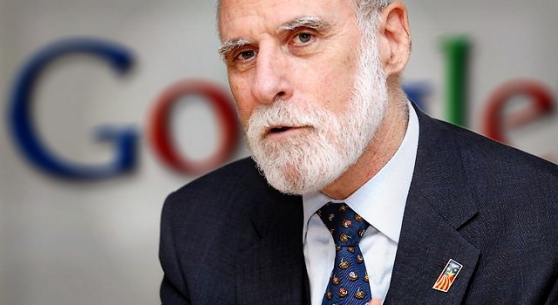
After fighting the patent battle of the decade in court with Oracle, Googlers are getting publicly fed up with software patents as a whole. Conceptually, they just don’t jive with innovation, two prominent Googlers have said recently.
[aditude-amp id="flyingcarpet" targeting='{"env":"staging","page_type":"article","post_id":514586,"post_type":"story","post_chan":"none","tags":null,"ai":false,"category":"none","all_categories":"business,","session":"A"}']“One thing that we are very seriously taking a look at is the question of software patents and whether, in fact, the patent system as it currently exists is the right system to incent innovation,” said Google public policy director Pablo Chavez at a conference in Mountain View, Calif, today.
“We think that these patent wars are not helpful to consumers,” Chavez continued. “They’re not helpful to the marketplace. They’re not helpful to innovation.”
AI Weekly
The must-read newsletter for AI and Big Data industry written by Khari Johnson, Kyle Wiggers, and Seth Colaner.
Included with VentureBeat Insider and VentureBeat VIP memberships.
While some might see this stance as a reaction to Google’s ongoing legal woes, the company brain trust has been adamantly antipatents for a while.
In a chat with a Google rep, we learned that the company particularly hates how patents work right now and sees the whole theater of patent law as against the grain of progress. For example, currently patents have a 20-year shelf life; Google thinks this could and should be shortened. The company also advocates for strong financial penalties for lawsuit-losing patent trolls and against the patenting of abstract concepts that are only patented in the first place because they’re executed online.
To that end, Google is busy on the long, boring trail to changing patent law by filing amicus briefs, advocating for reforms, and teaming up with other antipatent players in the tech industry.
Last year, Internet godfather Vint Cerf (pictured above; he invented the TCP/IP protocol that the web runs on) was asked at a cloud conference what he would tell the developer of the Next Big Thing, the technology that could replace the Internet.
Cerf responded, “Shoot the patent lawyer.”
As the room rippled with laughter, Cerf continued “Bob [Kahn] and I knew we could not succeed if we tried to protect the Internet’s design. As it turns out that worked out really well, and I think that’s still pretty good advice.
[aditude-amp id="medium1" targeting='{"env":"staging","page_type":"article","post_id":514586,"post_type":"story","post_chan":"none","tags":null,"ai":false,"category":"none","all_categories":"business,","session":"A"}']
“The open ability to develop new applications and try them out has been vital to the Internet’s growth and to the space in which we currently operate. It has interesting ways of enhancing both sides of the equation.”
Google won in its case with Oracle, which involved technologies core to the open-source Android operating system. However, Android patent lawsuits still abound, from the epic Samsung-Apple suits over hardware design to suits involving major Android manufacturer Motorola Mobility, now a wholly owned Google subsidiary.
Ironically, just last Friday, Motorola Mobility and Google filed their own patent suit against Apple, asking for an import ban on all Apple devices.
We guess that’s how Google has to balance reality and ideology, at least for now. We’ll continue reporting on Google’s many interesting and sometimes contradictory patent-related escapades, so stay tuned.
[aditude-amp id="medium2" targeting='{"env":"staging","page_type":"article","post_id":514586,"post_type":"story","post_chan":"none","tags":null,"ai":false,"category":"none","all_categories":"business,","session":"A"}']
VentureBeat's mission is to be a digital town square for technical decision-makers to gain knowledge about transformative enterprise technology and transact. Learn More